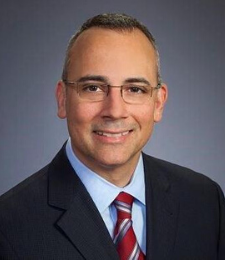I’m thrilled to announce that Bedard Law Group is the new sponsor for the Compliance Digest. Bedard Law Group, P.C. – Compliance Support – Defense Litigation – Nationwide Complaint Management – Turnkey Speech Analytics. And Our New BLG360 Program – Your Low Monthly Retainer Compliance Solution. Visit www.bedardlawgroup.com, email John H. Bedard, Jr., or call (678) 253-1871.

Every week, AccountsRecovery.net brings you the most important news in the industry. But, with compliance-related articles, context is king. That’s why the brightest and most knowledgable compliance experts are sought to offer their perspectives and insights into the most important news of the day. Read on to hear what the experts have to say this week.
Another Appeals Court Rules on What Defines ATDS Under TCPA
Joining a growing number of other Appeals Courts lining up against the Ninth Circuit, the Seventh Circuit Court of Appeals has affirmed a lower court’s ruling that technology that does not have the capacity to generate random or sequential numbers does not meet the definition of an automated telephone dialing system under the Telephone Consumer Protection Act. More details here.

WHAT THIS MEANS, FROM DAVID KAMINSKI OF CARLSON & MESSER: The Gadelhak 7th Circuit Court of Appeal decision is but another thorn in the plaintiff’s bar with regard to TCPA individual and class actions. It is the third Federal Court of Appeal decision to hold that in order for a system to constitute an Automatic Telephone Dialing System (“ATDS”) under the TCPA, the system must store or produce numbers to be called, using a random and sequential number generator. A system that merely dials numbers that are stored in a customer database does not constitute an ATDS. The 7th Circuit’s comments that the statutory text of the TCPA is “enough to make a grammarian throw down her pen” signals the struggle that all of the Federal Circuit Courts of Appeal that have interpreted the TCPA’s autodialer definition have had. The decision is consistent with the 3rd Circuit Court of Appeal (Dominquez) and the 11th Court of Appeal (Glasser), with regard to the ATDS interpretation. This leaves the 9th Circuit Court of Appeal in Marks as the outlier. This conflict between these federal circuit courts of appeal creates the requisite perfect storm for the Supreme Court to seriously consider granting the petition for certification on the ATDS issue filed in the Duguid v. Facebook 9th Circuit decision. With the Barr v. American Association of Political Consultants case set for Supreme Court review, and the pending petition in Duguid, the TCPA is extremely vulnerable as the attacks are coming from all fronts. Fireworks are in the air. Keep your eyes peeled – so much more to follow.
THE COMPLIANCE DIGEST IS SPONSORED BY:

Report, Bills Take Aim at Collecting Medical Debts in Maryland
In a coordinated effort, a pair of bills were introduced in the Maryland state legislature that target how medical debts are collected on the same day that a number of consumer groups released a report spotlighting the legal collection efforts of hospitals in the state. More details here.

WHAT THIS MEANS, FROM HEATH MORGAN OF MORGAN FINANCIAL GROUP: These two bills represent a trend in state legislatures that are focusing on the perceived injustices of hospitals suing on medical debt. The first bill is the most scary and irrational of the two, as there seems to be little reason and methodology in setting the bar on hospital litigation at $5,000.
It is the hope of the industry that these bills do not pass, but this should also be a good time for healthcare providers and agencies that specialize in collection litigation to assess the current environment. There has been intensive media and consumer advocate scrutiny on hospitals litigation practices, and the goal behind this is to eliminate litigation altogether for medical debts. These organizations continue to cumulate and collect are more data to make and support their conclusions, no matter how unbiased they are. If the collection industry and healthcare providers do not do the same, that is, collect data to support their position and show the value to collection litigation, they will loose the war when state laws like these are proposed.
Healthcare providers and medical collection agencies are close to a tipping point when it comes to the ability to sue on medical debt, and I hope the industry is able to respond and collect the data, and show that, more often than not, collection litigation is a valuable tool in helping patients engage and resolve their medical bills.
Judge Strongly Denies Motion to Certify $4M Settlement in TCPA Case
In a ruling that has been circulating quickly throughout the industry, a District Court judge in Pennsylvania has denied a motion to approve a class action settlement in a Telephone Consumer Protection Act case because of a “confluence of negative factors,” including that the judge did not believe that the defendant could only afford to settle the case for $4 million. More details here.

WHAT THIS MEANS, FROM LAUREN BURNETTE OF MESSER STRICKLER: Judge Baylson’s explanation of why the court refused to approve the proposed settlement is certainly one of the more thorough explanations of late, but it’s not an outlier. In recent years, judges have become far more proactive in vetting class settlements in the consumer protection context, with heightened focus on whether the proposed settlement is truly in the best interest of the class members. There’s a lot to unpack in this decision, but one big take-away is that parties to large class settlements such as the one at issue in this case must be prepared to thoroughly explain why settlement is reasonable not just in the context of a single class action, but in the broader context of the parties’ relative positions and the defendant’s business practices. Here, Judge Baylson highlighted a recent press release in which Flagship reported that its portfolio of managed receivables had grown by such a degree that the court wondered whether a mere $4 million settlement was sufficient to compensate the 67,000 class members in this case, considering each member would only receive a “de minimis” $35.00. This opinion emphasizes the need to treat the class approval process as a mini-trial, with both parties sharing the same goal of adequately explaining to the court why settlement is in the best interests of the absent class members.
Indiana Supreme Court Reverses Ruling on Statute of Limitations
The Indiana Supreme Court has reversed a lower court’s decision related to the state’s six-year statute of limitations on accelerating the repayment of a debt when it goes into default, ruling that under the state’s two applicable statutes of limitation, “a cause of action for payment upon a promissory note with an optional acceleration clause can accrue on multiple dates.” More details here.

WHAT THIS MEANS, FROM LAURIE NELSON OF PAYMENTVISION: This case is interesting and illustrates a clear example of how confusion is possible on both ends of a debt when determining the statute of limitation for a debt. This case was brought to the Indiana Supreme court after the court of appeals reversed the trial court decision claiming that the lender’s action was unreasonably delayed in accelerating the note and mortgage. The Supreme court reversed the appeals court decision and affirmed the trial court’s order by concluding that the lender filed suit against the borrowers within the applicable statutes of limitation. The Supreme court based this holding on the fact that Indiana has not one but two statues that a lender can assert a claim and under the second statue, the statute of limitation did not expire.
“First, a lender can sue for a missed payment within six years of a borrower’s default. Second, a lender can exercise its option to accelerate and fast-forward to the note’s maturity date, rendering the full balance immediately due. The lender must then bring a cause of action within six years of that acceleration date. Or, third, a lender can opt not to accelerate and sue for the entire amount owed within six years of the note’s date of maturity,”
This opinion was issued coincidentally only days before the Consumer Financial Protection Bureau (CFPB) issued its long-awaited Supplemental Notice of Proposed Rulemaking (SNPRM) for time-barred debt. In the SNPRM the liability is set at a “knows or should know” standard—rather than a strict liability standard. If a debt collector knows or should reasonably know that the debt is time-barred, then it must provide a disclosure. In this case, even if the Supreme Court were to have upheld the appeal holdings, the debt collector would have a clear case that the action would not meet the “should know” standard and would have a strong case to avoid liability under the new rule once issued.
Judge Grants MTD in FDCPA Case Over Name of Current Creditor in Collection Letter
A District Court judge in Florida has granted a defendant’s motion to dismiss a class-action lawsuit alleging it violated the Fair Debt Collection Practices Act by not properly naming the current creditor to whom a debt is owed in a collection letter. More details here.

WHAT THIS MEANS, FROM AYLIX K. JENSEN OF MOSS & BARNETT: The decision in Reyes emphasizes that while the “least sophisticated consumer” standard protects consumers, it still prevents liability for “bizarre or idiosyncratic interpretations” of collection notices “by preserving a quotient of reasonableness.” Importantly, the court explains that there is an expectation of the least sophisticated consumer to “connect the dots” on a collection letter. In this case, the court found that when connecting the dots, the least sophisticated consumer “is expected to understand that [the account owner] is the current creditor.” This holding continues an encouraging trend for debt collectors and highlights that merely because a consumer claims a collection letter is confusing, the alleged confusion must be analyzed pursuant to the least sophisticated consumer standard, which seems to be getting more sophisticated.
Aaron’s Sued By ARM Company For Allegedly Selling Accounts With Bad Data
A debt buyer and collector has taken the unusual step of suing a creditor for allegedly selling hundreds of millions of dollars in accounts that it knew had issues that made the debts uncollectible. More details here.

WHAT THIS MEANS, FROM STEPHEN IGLESIAS OF THE LAW OFFICE OF STEPHEN IGLESIAS: This is certainly not the first suit filed by the debt purchaser against a seller for alleged breaches of covenants in the purchase agreement. It is unlikely commercially available batch scrub tools would have uncovered many of the account defects in this case – i.e. unsigned leases, returned merchandise. One of the parties needed to expend resources on a line-by-line audit of the accounts. It will be interesting to see how the court construes the due diligence obligations of the parties and the underlying sales agreement.
Judge Grants MTD in FDCPA Case Over Different Amounts in Letter
A District Court judge in New York has granted a defendant’s motion to dismiss after it was sued for allegedly violating the Fair Debt Collection Practices Act by referencing different amounts for the “Total Due as of Charge-off” and the “Total Due” in a collection letter without explaining why the two amounts were different. More details here.

WHAT THIS MEANS, FROM SHANNON MILLER OF MAURICE WUTSCHER: Kleinman v. Frontline is a class action where the plaintiff alleged that the defendant, Frontline Asset Strategies, LLC (“Frontline”), sent a misleading collection letter because it provided amounts labeled as “Total Due as of Charge-off” and “Total Due” which were inconsistent because the charge off amount was greater than the amount being demanded in the letter and the letter did not explain the discrepancy. Frontline moved to dismiss, and the Court granted the motion, finding the letter was neither misleading nor unclear under the FDCPA.
The Court, while noting that the letter was the “lowest passing example of a sufficient debt collection notice” believed it nevertheless would not mislead the least sophisticated consumer because the rest of the letter, as well as how the information regarding the balance of the debt was laid out in the letter, left little doubt that the “Total Due” was the amount which was owed by the consumer, and not the charge-off amount. This included the letter’s use of a table showing the charge-off balance, a column for interest charged, a column for amounts paid since charge-off and finally a “Total Due” box, set off from the other columns, at the bottom of the table, in a position which the consumer would recognize as denoting the conclusive amount owed.
The take-away for the industry is that form can be just as important as substance when crafting a collection letter. In this instance, what otherwise might have been a misleading letter was saved, not so much by the content of the letter, which was more confusing that not, but by the way the contents were presented to the reader. While most the common challenges to collection letters at present attempt to parse words and expose what is and is not present in a letter, this case is a reminder that although the message is important, the manner in which it is presented can be equally important. In the age where the information and data required to be disclosed in a collection letter continues to pile up and vary from state to state, we are reminded that it may be a good time to invest in ensuring not just that the required disclosures are made but that they are made in a consumer-friendly format.
Collector Asks Ninth Circuit to Revisit How it Defines ATDS Under TCPA
Portfolio Recovery Associates has asked the Ninth Circuit Court of Appeals to re-consider its stance on how an automated telephone dialing system is defined under the Telephone Consumer Protection Act in the wake of rulings from a growing number of other Appeals Courts that conflict with the Ninth Circuit’s definition. More details here.

WHAT THIS MEANS, FROM STEFANIE JACKMAN OF BALLARD SPAHR: PRA’s letter to the court certainly has my vote but I doubt it will do much to change the Ninth Circuit’s view. Decisions from courts throughout that circuit continue to adopt broad, aggressive positions with respect to the TCPA, particularly with regard to what constitutes an ATDS. These decisions seemingly reveal that the Ninth Circuit has no issue at all with being an outlier. So, while I agree the decision is causing unnecessary splintering, I think that the court will remain just fine with its prior decision.
CFPB Issues NPRM Related to Time-Barred Debt Disclosures
In a move that had been alluded to on a few occasions, the Consumer Financial Protection Bureau on Friday issued a Notice of Proposed Rulemaking (NPRM) related to disclosures that would have to be made when collecting on time-barred debts. More details here.

WHAT THIS MEANS, FROM RICK PERR OF KAUFMAN DOLOWICH VOLUCK: The CFPB promised it would include within its Proposed Rule standards pertaining to out-of-statute debt and its recent release does just that. The Bureau has long taken the position that omission of certain information during collection of out-of-statute debt is a violation of the FDCPA. It had previously convinced at least two Courts of Appeal that such language is necessary. The SNPRM codifies this viewpoint.
Many of the specifics are addressed in a webinar already broadcast by AccountsRecovery.net. Like the prior NPRM, the Bureau has a small comment window currently open. Take advantage of this opportunity to educate the Bureau on its proposal. However, expect the Final Rule to mostly reflect the SNPRM.
Judge Awards Defendant $15k in Attorneys’ Fees After Dismissing FDCPA Case
A District Court judge in Maryland has partially granted a defendant’s motion for attorneys’ fees and costs, awarding nearly $15,000 to the defendants who were sued by the relative of a frequent filer for allegedly violating the Fair Debt Collection Practices Act. More details here.

WHAT THIS MEANS, FROM LAUREN VALENZUELA OF PERFORMANT: The pro se plaintiff’s brother was a frequent flier, non-attorney, who touted his legal services for debt collection cases on LinkedIn. The plaintiff claimed in an affidavit that he had not spoken to his brother about the case he filed, and that he primarily used PACER and the National Consumer Law Center to help him draft his pleadings and motions. The plaintiff failed to show-up at the pre-trial conference, and instead his frequent flier non-attorney brother appeared on his behalf. The Court asked the brother to answer questions under oath, to which the brother refused. The Court proceeded to ask the brother questions about the claims he made on his LinkedIn page, and the brother nonetheless admitted that he “may have had a hand” in helping his brother prepare the pleadings. The Court was in no mood for shenanigans and granted the defendant’s motion for sanctions. The Court found that the plaintiff “floated claims of dubious veracity, has held back documents, and given dodgy responses to critical inquiries when it has suited him to do so.” The Court found that the suit was “brought in bad faith and for the purpose of harassment,” and awarded reasonable attorneys’ fees to the defendant. The plaintiff claimed he was unable to pay the attorneys’ fees and costs due to his “precarious financial situation.” However, the Court pointed out “ability to pay is not a factor under 15 U.S.C. §1692k(a)(3), which states “[o]n a finding by the court that an action under this section was brought in bad faith and for the purpose of harassment, the court may award to the defendant attorney’s fees reasonable in relation to the work expended and costs.
Let’s not forget – the Fair Debt Collection Practices Act (FDCPA) was designed to not only protect consumers. One of the stated purposes in the FDCPA is to ensure “that those debt collectors who refrain from using abusive debt collection practices are not competitively disadvantaged.” The fee shifting provision in the FDCPA reflects a mechanism Congress included to that aim.
While the defendant was not able to recoup all of their fees (the Court was gracious to give the plaintiff a 25% discount of an amount that was already found to be “reasonable”), combatting frivolous litigation is necessary to preserve judicial resources and to also protect the integrity of the FDCPA.
I’m thrilled to announce that Bedard Law Group is the new sponsor for the Compliance Digest. Bedard Law Group, P.C. – Compliance Support – Defense Litigation – Nationwide Complaint Management – Turnkey Speech Analytics. And Our New BLG360 Program – Your Low Monthly Retainer Compliance Solution. Visit www.bedardlawgroup.com, email John H. Bedard, Jr., or call (678) 253-1871.









